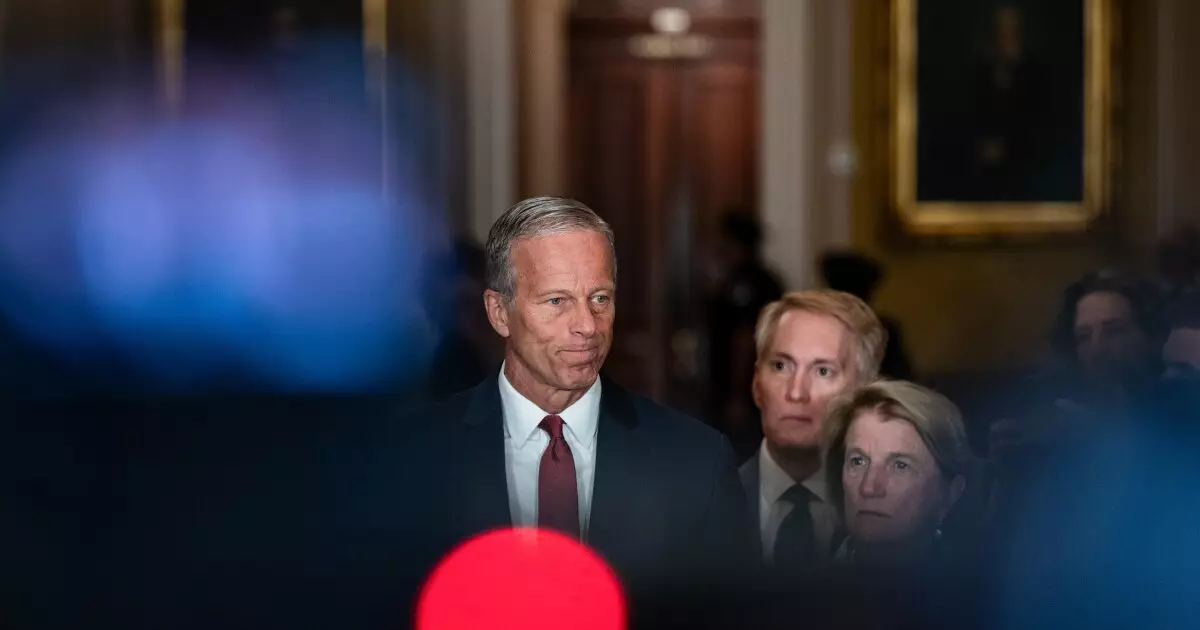In a surprise move, Senate Republicans are pivoting towards a proposed $15 billion relief fund aimed at shielding rural hospitals from impending Medicaid cuts—a digital mirage of political goodwill amidst stormy waters. This initiative is more than just a last-ditch effort to salvage the bill; it reflects a troubling reality faced by rural healthcare providers who are grappling with bleak financial landscapes. The overwhelming majority of these facilities, even before any cuts, were struggling, with nearly half reported operating at a loss. As negotiations spiral, one can’t help but wonder whether this fund is simply a bandage covering a much deeper wound—one that politics seems determined to neglect.
Targeted Cuts and the Political Balancing Act
States like North Carolina, Iowa, Kentucky, and Oklahoma stand to face some of the harshest cuts. The Senate’s version of the tax and spending bill proposes drastic lowering of allowable provider taxes that states depend on to finance their Medicaid programs. This contentious issue is compounded by the intricate tangle of Senate rules, particularly the Byrd Rule, which dictates that only budget-related provisions can be included in reconciliation bills. The Senate parliamentarian’s decision to reject key cost-saving measures adds to the frustrations, illuminating a chasm between the Senate’s ambitions and the political viability of its proposals.
Senate Majority Leader John Thune’s repeated assurances that the decision to respect parliamentary rulings is a strategic necessity rings hollow in the face of so many vulnerable livelihoods hanging in the balance. The refusal to simply override the parliamentarian suggests an ideological commitment to parliamentary decorum over pressing humanitarian needs—a move that could cost vulnerable populations their essential healthcare services.
Financial Stakes and Market Reactions
The unfolding financial implications of this debate extend well beyond the walls of Congress. The municipal bond market—already jittery—predicts that the Republican maneuvers could trigger heightened fears of a return to tax exemptions for municipal bonds, thereby destabilizing investment in healthcare infrastructures. The optics of altering Medicaid financing creates a sense of urgency among hospital operators and investors alike; as revenue declines, so does the ability to sustain rural services. Senate leaders might consider this relief fund as a palliative measure, but with it comes the risk of distressing investors further.
The proposed fund allocates $3 billion annually to be divided among states, with half distributed equally and the remainder contingent on metrics yet to be defined. This raises troubling questions about fairness and adequacy. When one considers that states with more significant populations or more extensive healthcare needs might require a larger share, will this fund truly resolve any issues faced by rural hospitals?
Red States, Blue Problems
Interestingly, many of the states most affected by proposed cuts are red states that have predominantly supported Republican politicians. Kentucky, a state poised to lose $4 billion in Medicaid coverage over the next decade, exemplifies the contradictory nature of this political maneuvering. Has political alignment with the GOP inadvertently put these states in peril? It’s perplexing that lawmakers eager to cultivate rural support would risk alienating their constituents—a gamble that seems both politically shortsighted and ethically questionable. One must constantly ask: why do these patterns repeat?
The Long-Term Consequences of Short-Term Solutions
What remains unsettling about this entire episode is the illusion of security offered by the $15 billion relief fund. It presents a façade of actionable steps while failing to address the systemic problems that plague rural healthcare. This is not merely about passing a bill; it is about recognizing that rural Americans, so often overlooked in the political discourse, deserve credible solutions rather than superficial salves.
If Senate Republicans truly aim to support rural hospitals, they must confront the enduring challenges besetting Medicaid financing head-on. Their current trajectory—characterized by cut instead of care—suggests a worrisome precedent that could jeopardize these communities’ healthcare future. The question echoes, loud and clear: Is this truly what Republicans want their legacy to be?

